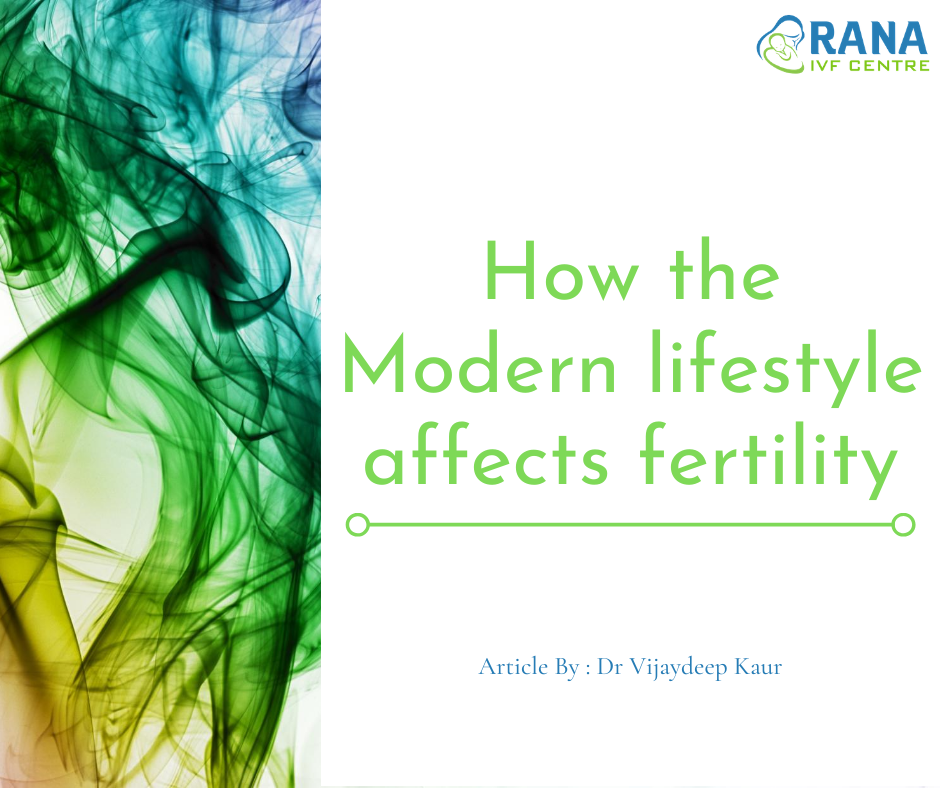How The Modern Lifestyle Affects Fertility
At present, a large number of couples are having difficulties in getting pregnant due to infertility. The ratio is noticeably high in modern cities, particularly among couples where both are working professionals. The modern lifestyle and diet are taking a toll on human health. Infertility affects both men and women equally; this article highlights some of the modern lifestyle trends that tend to affect the ability to conceive a baby.

Lifestyle factors like age, weight, nutrition, psychological stress, exercise, occupational and environmental exposures, and other lifestyle factors have a considerable effect on the fertility of both men and women. Consumption of alcohol, caffeine, illicit drugs, and smoking also impairs the ability to become pregnant.
Diet (caffeine use)
Beverages like tea, coffee, different varieties of energy drinks, and aerated drinks contain a high caffeine concentration. The prolonged consumption of these beverages reduces the fertility of both men and women. Experts advise limiting caffeine consumption as well as alcohol-containing beverages if they are planning to conceive a baby.
Use of Laptop and mobile
Continuous use of gadgets like laptops and mobile phones is found to decrease the quality of semen. Radiation from these gadgets harms the sperm quality of men as it reduces sperm volume, sperm count, viability, and motility.
Smoking and alcohol
Smokers find it quite challenging to quit smoking entirely at some point in their lives. But it is essential to understand the benefits of leaving cigarettes and alcohol for health and fertility. Cigarettes comprise of harmful compounds like cyanide, carbon monoxide, and nicotine that reduces the fertility of a person. It is observed that fertility improves a lot once the person stops smoking.
Air pollution
Exposure to toxic gases and polluted air significantly affects the fertility of a woman. However, age, the extent of daily exposure, health are also responsible for reducing fertility.
Plastics and increased use of synthetic fertilizers and pesticides
Excessive exposure to BPA harms the human reproductive system significantly. The harmful impact is evident, particularly in women; reducing the number of follicles in women lowers the production of mature eggs.
Steroids
Currently, a lot of men have started using steroids alongside physical exercises. But consumption of excessive steroids can result in shrinking of the testicles, which will eventually stop sperm production. Drugs containing anabolic steroids impair reproduction ability of men.
Heat and chemical exposure
The impact of occupational exposure on the human reproductive system in both men and women is observed in the form of altered sex hormones, reduced potentiality and libido, premature menopause, menstrual disorder, ovarian dysfunction, and poor semen quality.
BMI (obesity)
The body weight of an individual can have a significant effect on fertility. People with low BMI around 18.5 chances are high that the hormonal balance is not in the right state. Similarly, higher BMI also leads to fertility issues. Both high and low BMI affects a person’s ability to become pregnant. It is recommended to consult a doctor to know more about the correct BMI per one’s age & height.
All the factors mentioned above affect fertility in both men and women. Hence it is suggested to follow a balanced lifestyle with adequate nutrition, exercise, and medication before conceiving a baby. Couples must always consult a medical practitioner before they plan to become pregnant.





No Comments